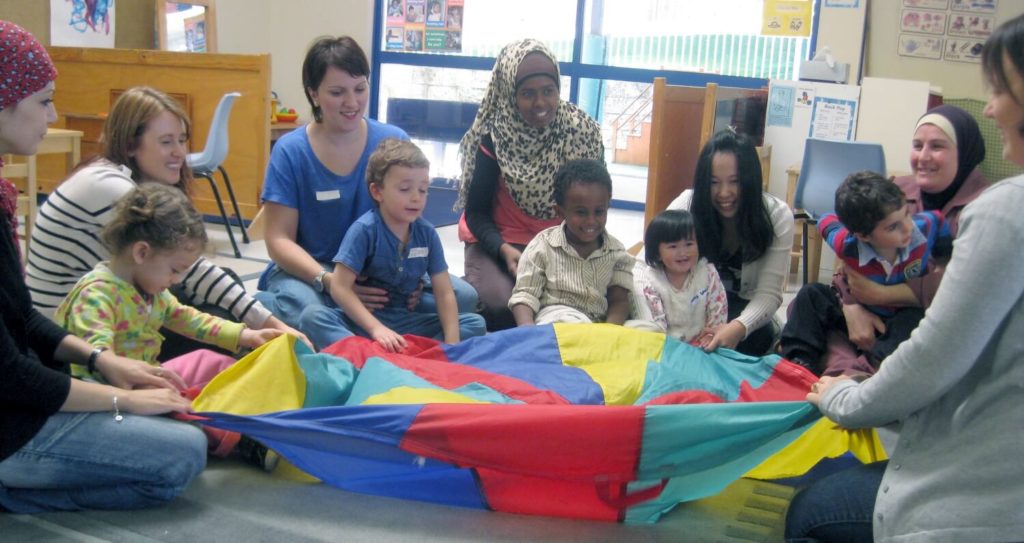Early Intervention for Babies – Why You Shouldn’t Wait
Are you concerned about your child’s development? 
The first years of life are a critical time in a child’s development, when they are experiencing rapid growth and development. It is a key time when we can support children to lay the foundations for future learning. Children develop at their own pace with the typical development milestones of rolling, sitting, crawling, standing, communicating usually following the same pattern and happening at about the same time.
For some children however, their development does not go as expected and there are concerns about their progress. Parents are often the first to notice that their child appears to have some difficulties learning or is doing things differently. Sometimes it is a grandparent, a friend or your early childhood nurse.
In some cases, a child’s developmental problems may be evident from birth. In other instances, it may take several months to realise that developmental milestones are not being met.
Find supports as early as possible.
If you are concerned about your child’s development, it is important to check things out early. Babies and toddlers with developmental delays will need extra help to meet their developmental milestones. At this time, they are learning so much that if they are experiencing difficulties and are not given the help they need their delays may increase. If they receive support they can learn new things and reduce the possibility of further delays or difficulties in learning.
If you are unsure, call EarlyEd to discuss your concerns or organise to attend one of our playgroups. You can also talk to your local early childhood nurse. If friends or family tell you not to worry but you still feel it is concern, it is important to trust your instincts and check things out to be sure.
Attendance at EarlyEd’s playgroups is welcome with no waiting times. These groups are run by experienced staff and provide a relaxed and supportive setting. Get in touch with EarlyEd to visit or join a playgroup near you today.
The importance of connecting with an early intervention service
An early intervention service has staff who understand about all areas of child development. This is important because a delay in one area can often have an effect on other areas of a child’s development. For example, when a baby is delayed in learning to sit, it means that they can’t use their hands to explore. This is why early help can reduce the likelihood or degree to which difficulties might develop in other areas. If a baby can explore and experiment they start to problem solve, understand how their world around them works and it encourages them to be inquisitive and learn.
When early intervention professionals help you know how to assist and encourage your child’s development it can lessen or even eliminate the long-term concerns that effects their language, cognitive, motor and social-emotional development. This can then reduce the need for intensive special education services later.
You as parents are the most important influence on your child’s learning. You are therefore your child’s best teacher. When you get support from an early intervention service you become equipped with the skills needed to support your child’s learning in all parts of their daily life.
Supporting your child’s individual needs
Early intervention uses a holistic approach, bringing together the team of early intervention professionals that best suits your child and family’s individual needs. EarlyEd’s baby program involves individual and group sessions and training for specific areas such as our Hanen programs. The team who support you can include physiotherapists, speech pathologists, occupational therapists, special educators and family support workers.
Through individualised sessions, your early intervention team can provide advice and coaching on
- how to support your baby during all the everyday activities you do with your child
- how to use what you have around the house to help your child move and develop and
- how to help them learn new things as they play and explore.
Through early intervention, brain development, muscle strength and play skills are stimulated. This assists babies to progress through their developmental milestones.
Supporting development through play
Babies learn by playing. Early intervention groups provide your child with quite different play activities which are designed to support your child’s individual learning needs. Additionally, you can observe the way other babies learn while other parents are playing with their own child and being supported by the team.
EarlyEd’s Early Learner groups provide important play-based skill development and socialisation opportunities for young children, and also provide support and connection with other parents and caregivers.
As part of the early learners program, we can offer support to your preschool/child care centre to help your child’s inclusion and participation. EarlyEd can assist by:
- Supporting the successful transition to preschool/child care.
- Support once your child has started preschool/child care with regular visits for consultancy and support.
For more information on how EarlyEd can support your child’s transition to preschool / childcare, see the blog post: Preparing for preschool or childcare or read about our Childcare and Preschool consultancy services.
Kerry Dominish, CEO, EarlyEd
Kerry is a speech pathologist who has worked for over 35 years in the field of early intervention. She has worked with children and their families and values the creation and maintenance of a team around the child, working together for the best possible outcome.